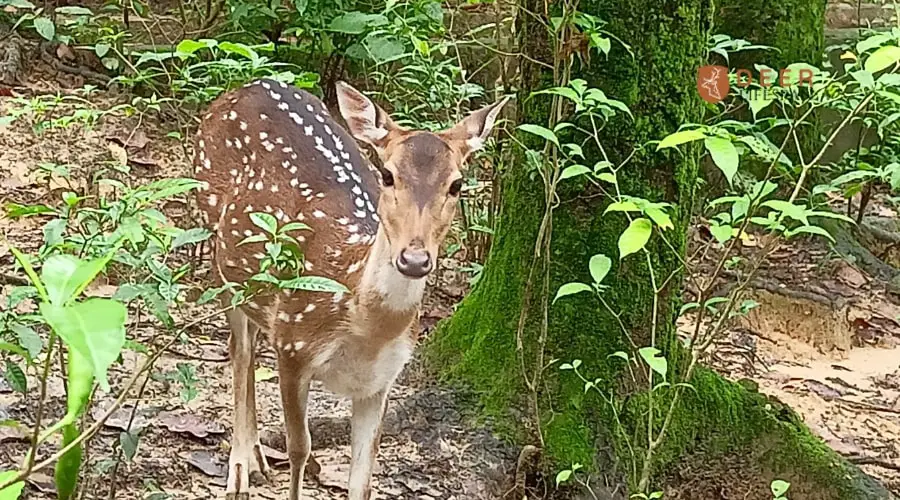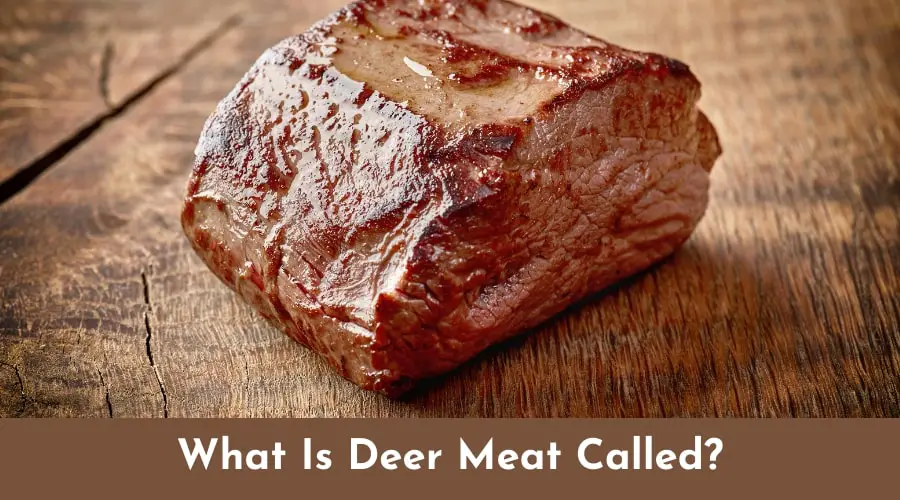In the food industry, meat can be categorized based on the animal it comes from. Moreover, its name also depends on the age of the animal.
With so many different animals being used in multiple cuisines, meat classification is vaster than most people think.
Among these, deer meat has risen in popularity. This is because many people hunt deer.
The deer’s skin works as excellent quality leather. The skin can also be dried and used at home as rugs or showpieces.
The horns are collected, and a set of sizeable undamaged deer horns can fetch a hefty price.
So if you’ve been wondering about what is deer meat called, this article will be helpful for you.
Dear meat is called venison. A baby dear is called a fawn. Unlike baby cows, whose meat is called veal, baby deer meat doesn’t have a specific name. This is because the taste of the meat from a baby is no different from that of an adult.
Furthermore, deers are mainly hunted for their coats and horns, and baby deers have little to offer in that respect. So hunters prefer to leave them alone so that they may grow into worthy prey.

Table of Contents

Benefits of consuming Venison
Deer meat is an excellent source of CoQ10.
CoQ10 is a vitamin-like substance produced by the human body naturally. Its production rate decreases as we get older.
Reindeer meat had a CoQ10 count of 15.8 milligrams per 100 grams of meat which is the highest level of CoQ10 you can get from any food source.
Moreover, deer meat also contains 330 milligrams per 100 grams of carnosine, a powerful antioxidant.
The human body requires a sufficient amount of antioxidant intake per meal to get rid of the toxins in the body and prevent toxin buildup.
Venison has a calorie count of 157 calories per 3.5- ounce serving. This is similar to the number of calories in chicken breasts and is 40 percent less than the number of calories in beef.
Venison also has 50 percent lower total fat and 40 percent lower saturated fat than beef.
Beef has 6.2 grams of protein, while venison has 7.4 grams of protein per ounce serving. This means that venison has 20 percent higher protein than beef.
Due to the low-calorie count and percentage of fat, while having a high rate of protein, venison is an excellent choice for meat in a diet plan.
Most venison comes from the wild deers, as deer farming isn’t that proficient. Thus venison is free from harmful hormones used in farmed animals.

Concerns about Venison
The main concerns about venison are:
1. Endangerment of Deer population:
PETA is an organization that protects the rights of animals in the wild. PETA protests the consumption of venison as it is collected by killing wild dears.
They claim that it is unethical to harm wild animals and might drive them to extinction.
The ethics of killing wild animals has always been a matter of debate, but PETA doesn’t admit that there is an overrun of the deer population in the USA, so there are no risks of extinction for deers due to the consumption of venison.
2. Health issues:
Venison is a type of red meat, so, like all red meat, venison also contains L carnitine. L carnitine is a substance that increases the risk of heart disease in the human body.
L carnitine is not harmful, but when it is metabolized in the human stomach, it produces trimethylamine N-oxide( TMAO).
TMAO damages the arteries and leads to fat buildup in arteries, increasing the risk of heart attacks, strokes, and coronary heart diseases.
Venison vs. Veal
Venison and veal are considered among the finest specimens of meat when it comes to fine dining.
People spend thousands of dollars at expensive restaurants to try a single serving of either one.
Venison is game meat from deers with a similar flavor to beef. The meat itself is tender and robust, which requires a long time to cook properly.
On the other hand, Veal is meat from calves, which are baby cows feeding only milk or a mixture of milk and regular feed.
Their meat is pale and has a mild flavor, unlike the meat from a fully grown cow. The tenderness is similar to pork.
Read More:
- How to Tame a Deer
- How to Approach a Deer Without it Running Away
- How far can a Deer run with a Lung Shot
Final Word
Venison is a rich and healthy choice when it comes to meats. The hunting of wildlife is not encouraged, but the consumption of venison doesn’t significantly affect the hunting of deer.
Venison also poses some risks to your health. That being said, regular consumption is not advised. But it is a fine choice if you want to have a fine dining experience on a special occasion with some red wine.

